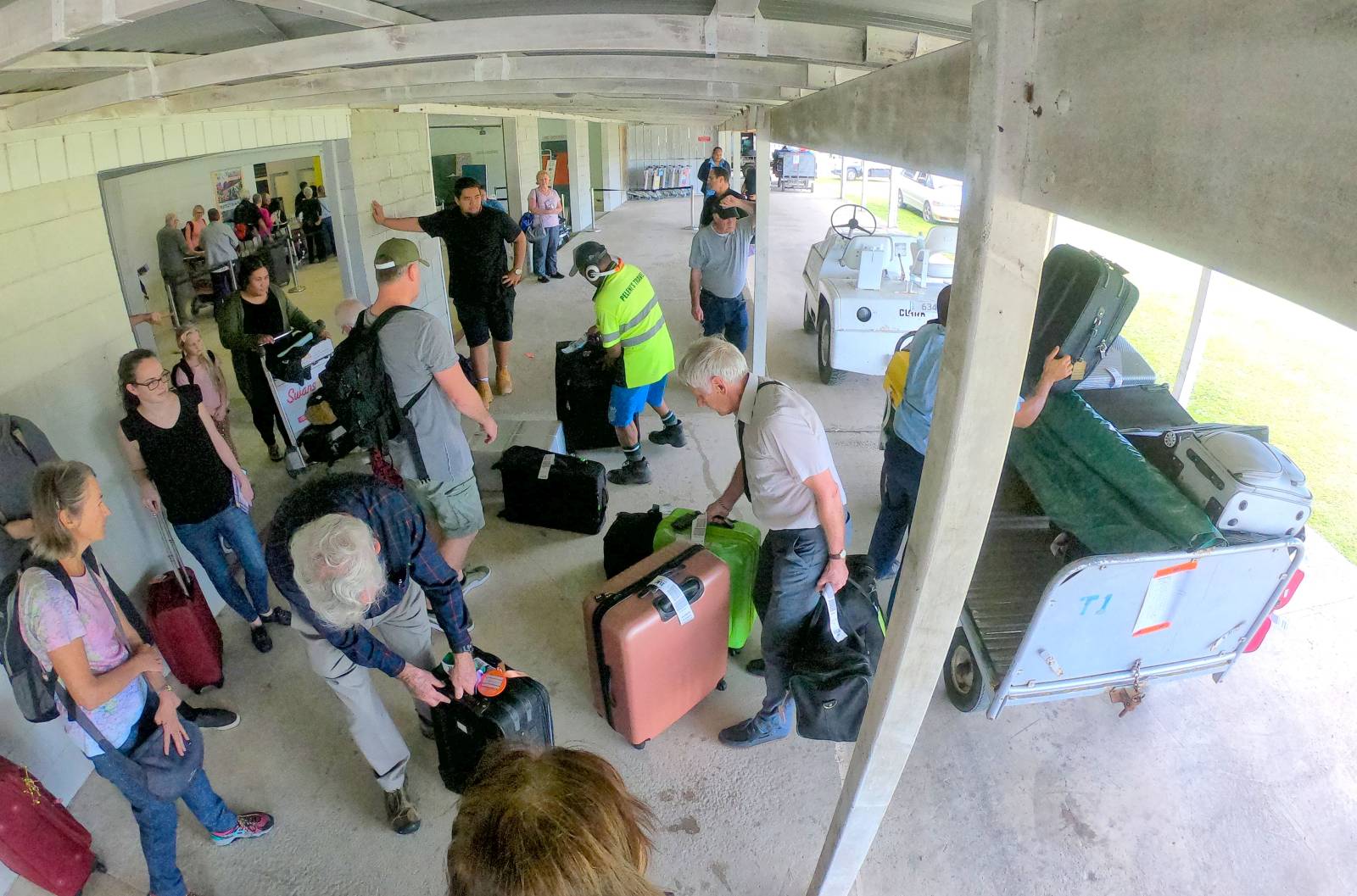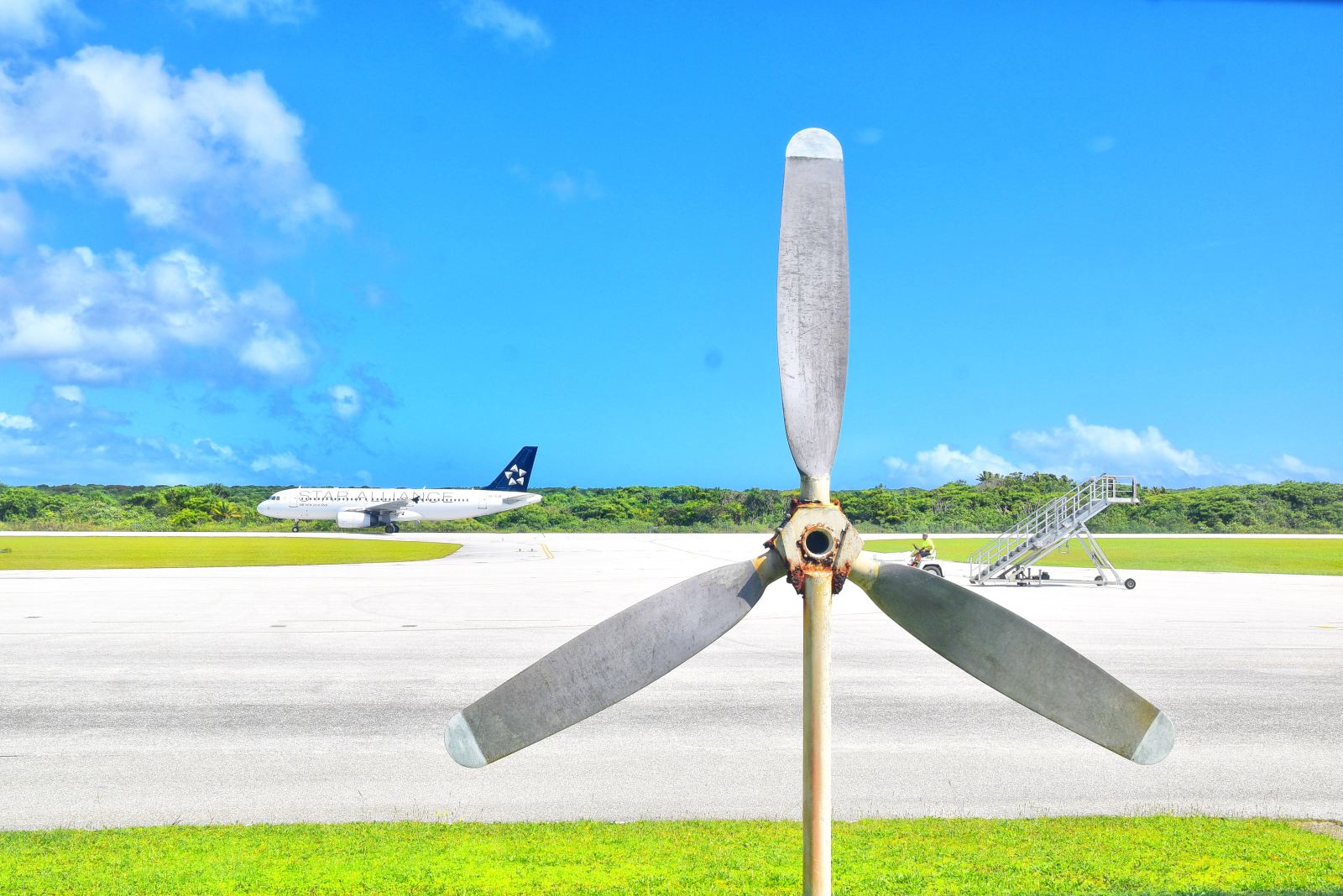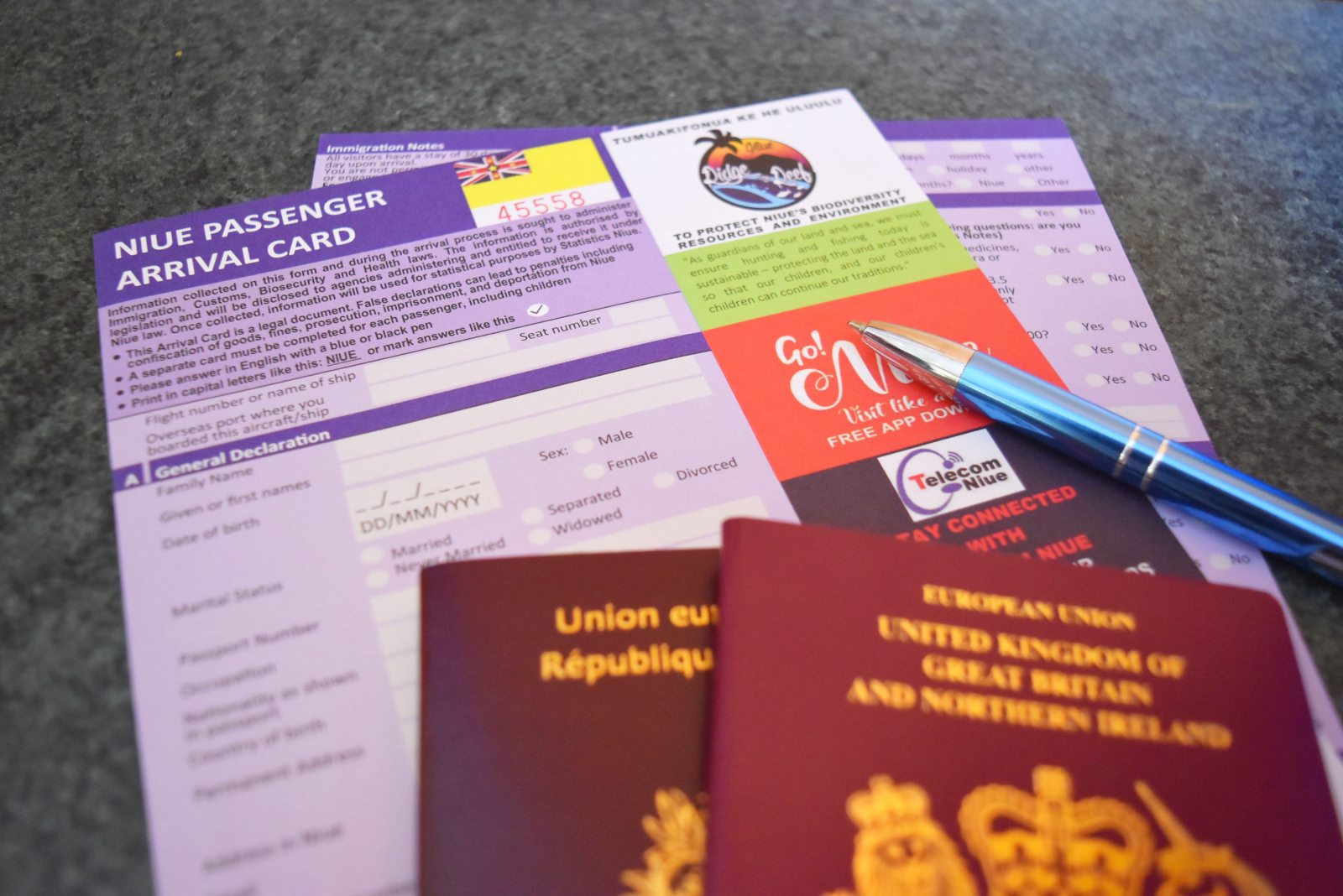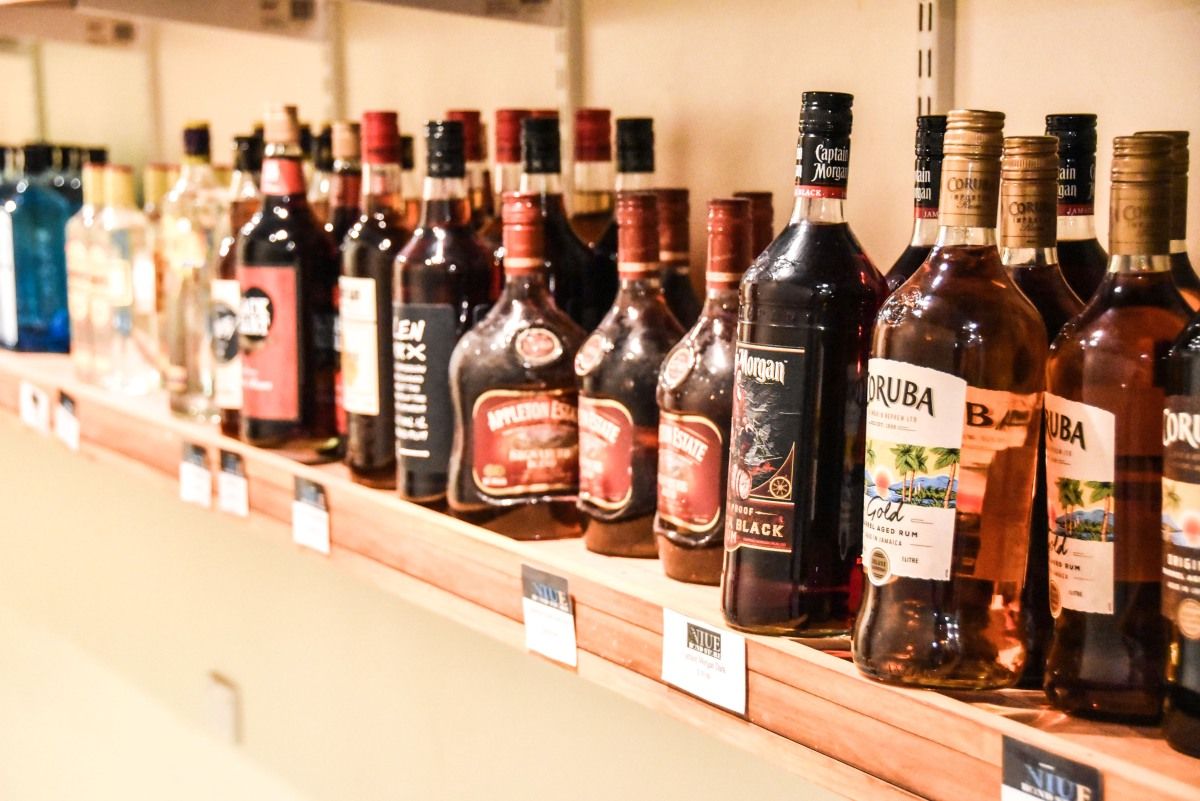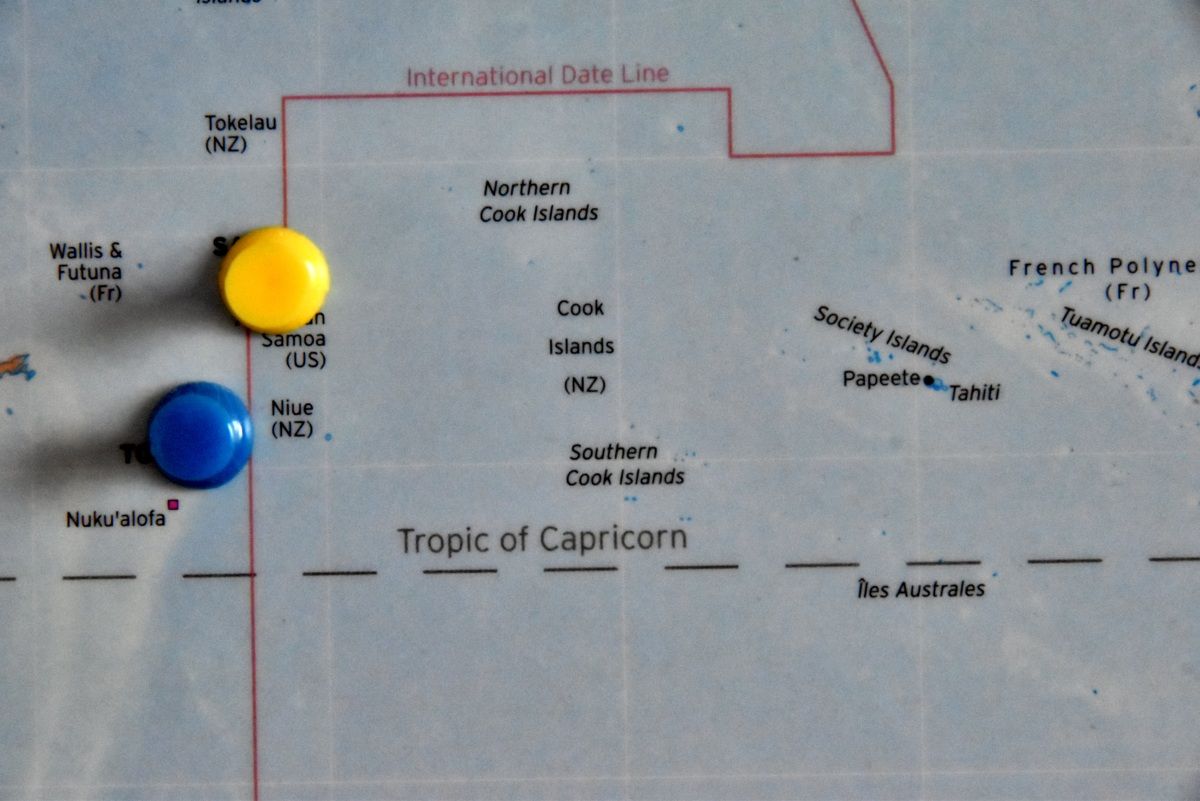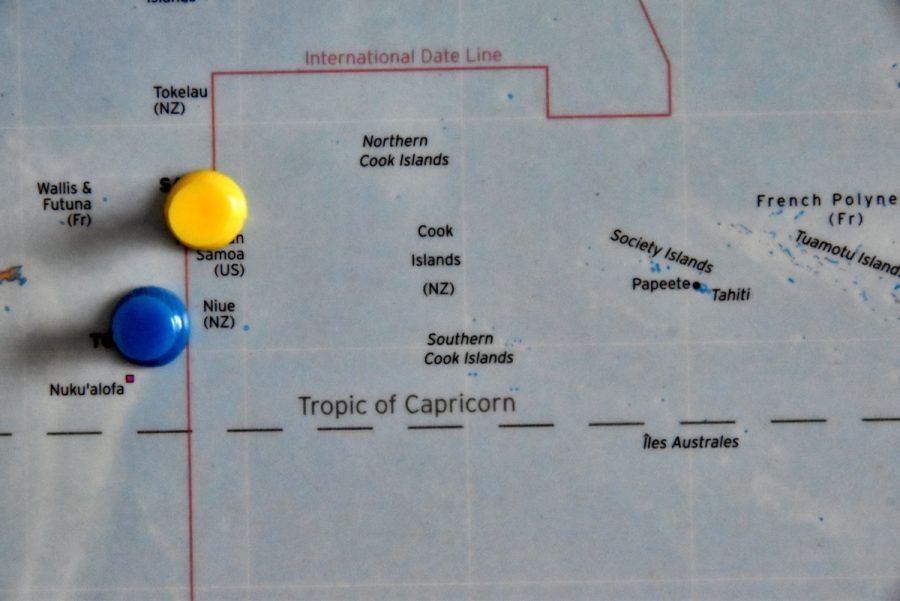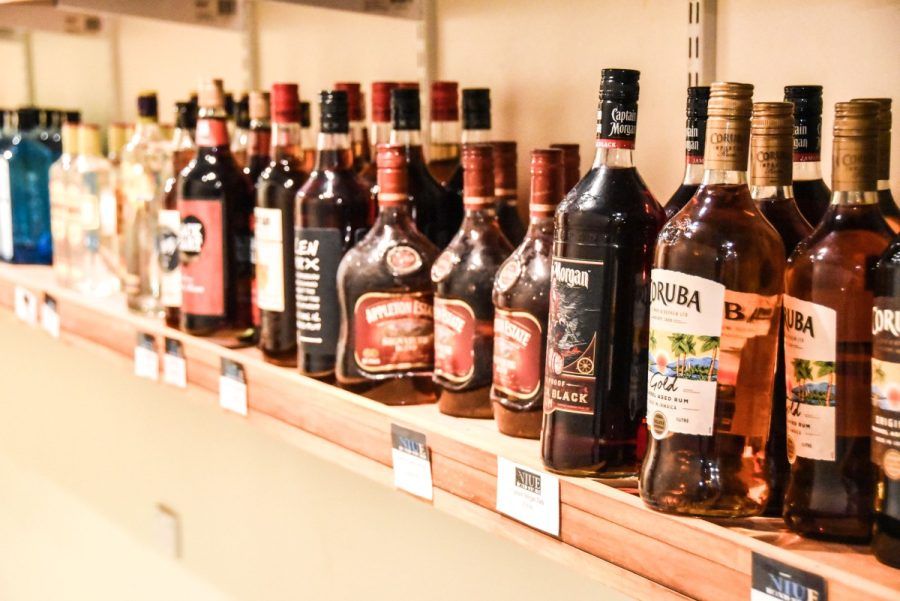A Guide to Biosecurity and Customs Declarations in Niue
Niue has a fragile ecosystem that the Niuean Government wants to protect. Niue operates a strict biosecurity procedure for people travelling to Niue from overseas to protect the environment from harmful pests and diseases. Part of the procedure is for visitors to Niue to declare any potential risk items that they have packed or have in their possession. Declarations are made by completing the Niue Passenger Arrival Card, distributed during your flight or cruise to Niue.
Some aspects concerning health also need to be declared in order to protect the health of the residents of Niue. Customs declarations also need to be made concerning cash reporting and duty-free goods. So you know what to expect to have to declare when arriving in Niue, we’ve put together a list of declarable goods in the guide below.
For more information about customs, health and biosecurity in Niue, see Arrival Advice: Biosecurity and Customs in Niue. Otherwise, continue reading to learn about what specific items you should declare when arriving in Niue.
4 Tips for Declaring Goods and Health in Niue
- If you are unsure of an answer on the Passenger Arrival Card, tick “Yes” to declare it anyway! Even if the item didn’t need to be declared, you will simply be asked a few questions and not receive any penalty
- Any false declarations on your Passenger Arrival Card can lead to confiscation of goods, fines, prosecution, imprisonment and deportation, depending on how severe the false declaration is
- If you answer “Yes” to any of the health declarations, you may be required to undergo a medical examination by a Health Officer
- Just because you need to declare something, doesn’t mean that you can’t bring it into the country, such as certain foods and sports equipment.
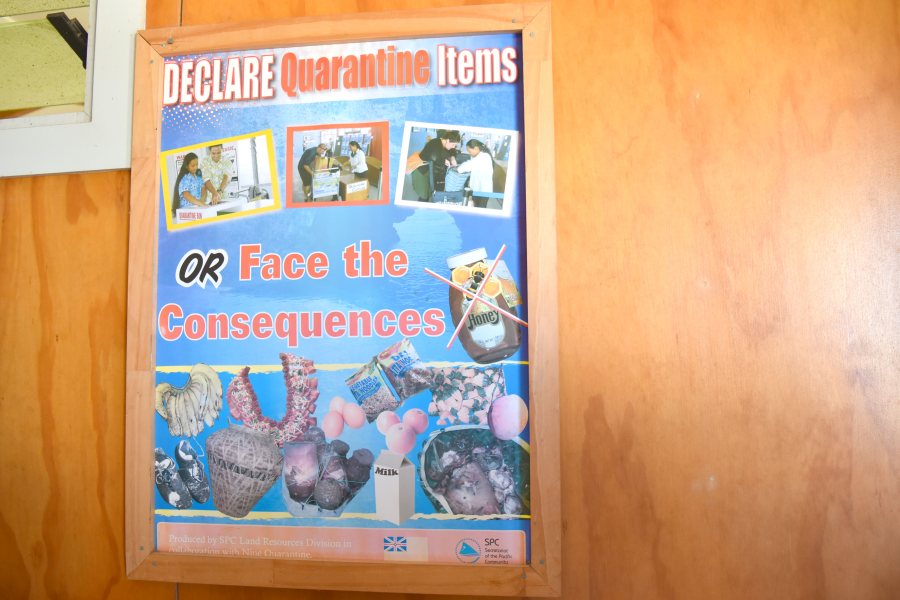 (c) niuepocketguide.com
(c) niuepocketguide.comDeclaring Food When Arriving in Niue
It’s pretty common for some of us to pack a few snacks or some cheese to enjoy an in-room cheese platter during our stay. However, know that you must declare any food when arriving in Niue.
Any food must be declared when arriving in Niue, including food that is:
- cooked
- uncooked
- fresh
- preserved
- packaged
- dried.
Note that there are some food items that you cannot bring into Niue, including honey, home-grown vegetables, fruit, herbs and free-range eggs. Only meat and meat products that have been bought from a butcher may be brought into Niue, where receipts for these food items will be helpful for Biosecurity Officers.
For a list of food that you can and cannot bring into Niue, check out our guide, Taking Food to Niue: What You Need to Know.
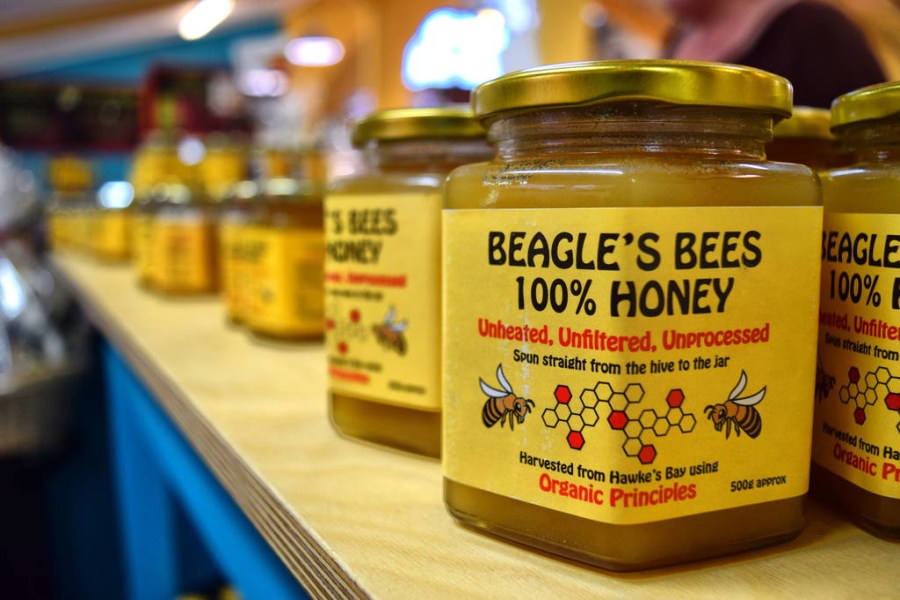 (c) niuepocketguide.com
(c) niuepocketguide.comDeclaring Animals and Animal Products
Animals and animal products also must be declared when arriving in Niue. The category of animal and animal products can cover a wide range of goods, from food made from animals to souvenirs made with animal materials.
Animals and animal products you must declare include:
- Meat including meat products
- Dairy products, including cheese, milk, milk powder and butter
- Eggs including egg products
- Honey including pollen, bee products, honeycombs and beeswax
- Fish
- Feathers, bones, tusks, furs, skins, stuffed animals and reptiles
- Biological cultures and organisms
- Coral, turtle shells and ivory
- Live animals, pets, birds, fish and insects.
 (c) niuepocketguide.com
(c) niuepocketguide.comDeclaring Plants and Plant Products
You must also declare any plant or plant products when arriving in Niue. This includes any food made from plants, such as vegetables, to items made out of wood, for instance.
Items relating to plant and plant products that you must declare include:
- Nuts including unprocessed and raw
- Herbs and spices
- Plants including live and dried flowers, seedlings, bulbs and leaves
- Mushrooms and fungi, fresh or dried
- Pine cones and pot pourri
- Wood carvings and artefacts, basketware and mats in any form
- Cane bamboo
- Rattan wood
- Straw.
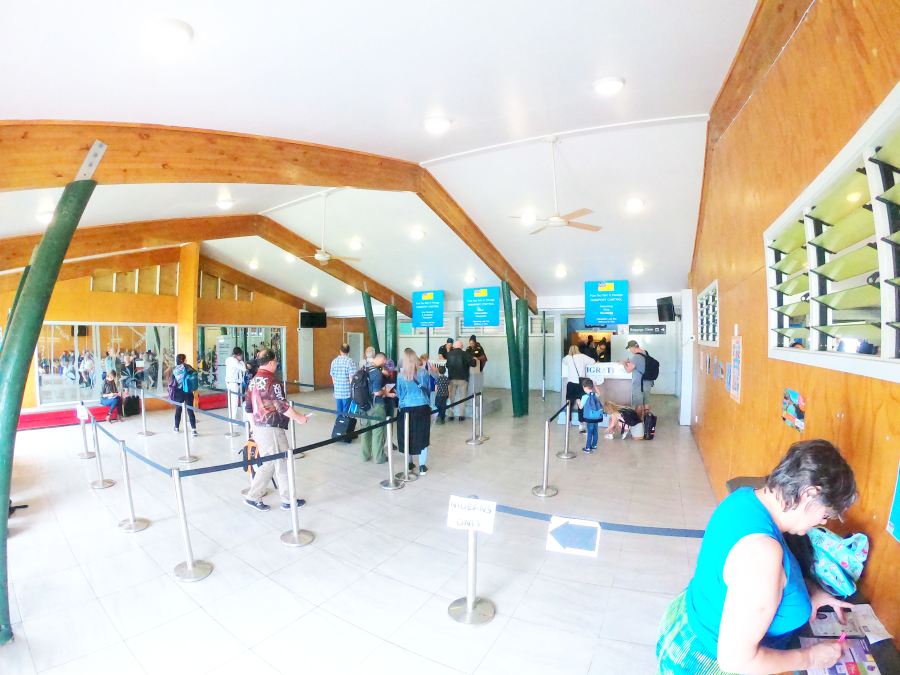 (c) niuepocketguide.com
(c) niuepocketguide.comDeclaring Sports and Outdoors Equipment
It’s common for visitors to bring their own snorkelling, diving or other watersports gear to enjoy Niue’s waters. Many visitors also bring their own sports equipment for land activities, such as golf clubs or hiking shoes, for example. Because these items typically come in contact with soil and water, these too must be declared.
The equipment you need to declare when arriving in Niue includes:
- Riding equipment including clothing, footwear and grooming equipment
- Equipment and clothing used in association with farm animals
- Equipment used in association with gardening
- Equipment used in association with beekeeping
- Equipment used in association with fishing
- Equipment used in association with water sports or diving
- Items that have been used in the outdoors including boots, golf or sports shoes, camping gear, hiking and sporting equipment.
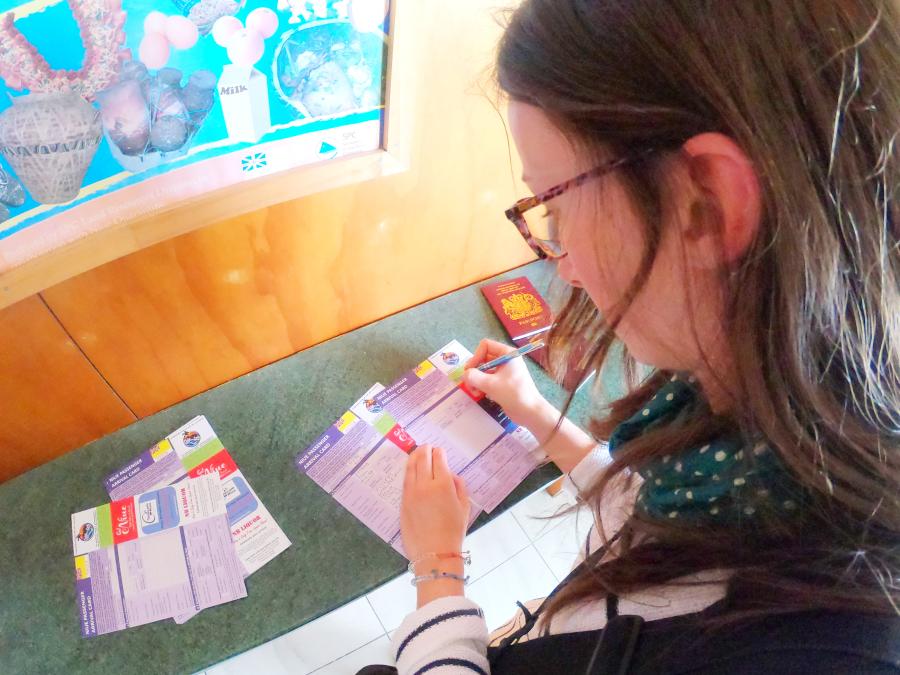 (c) niuepocketguide.com
(c) niuepocketguide.comOther Biosecurity Declarations
There are some additional biosecurity aspects to declare when arriving in Niue.
Additional items to declare concerning Biosecurity, include:
- Soil and water in any form
- Human remains (ash)
- Holy water
- If you have visited a forest, had contact with animals (except domestic cats and dogs), or visited properties that farm or process animals or plants within the last 30 days outside of Niue.
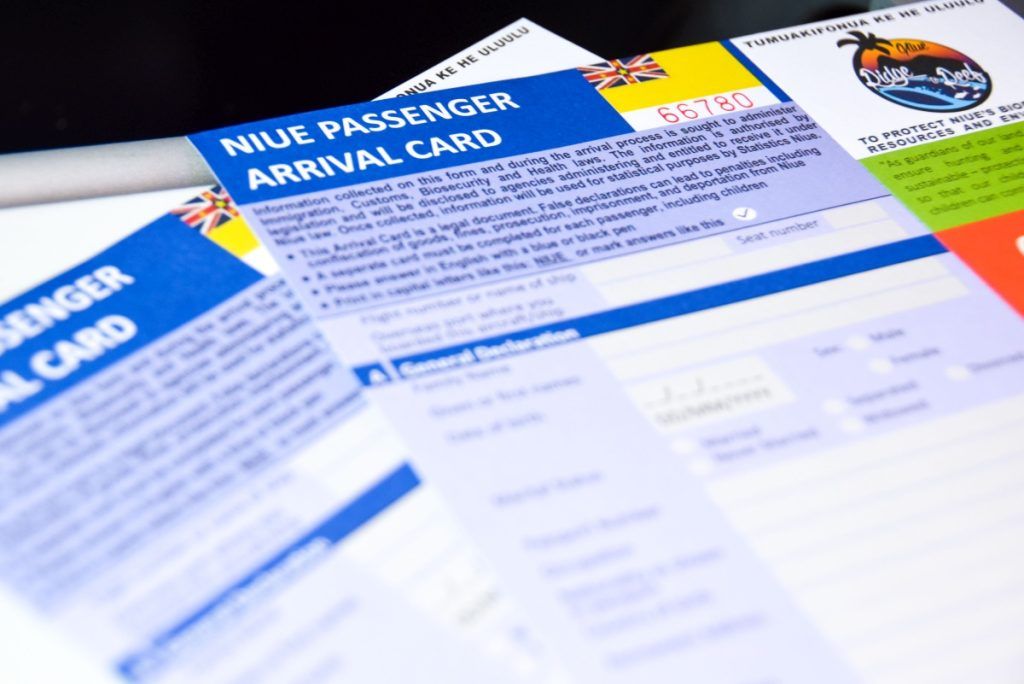 © NiuePocketGuide.com
© NiuePocketGuide.comHealth Declarations
You need to declare some things concerning health. These include:
- A list of all of the countries you have been to in the past 30 days
- Any infectious disease you might be suffering, including AIDS, Chicken Pox, Chikungunya, Cholera, Dengue Fever, Ebola Virus, Influenza, Leprosy, Measles, Rubella, Typhoid, Yellow Fever, Zika Virus and any other disease declared from time to time
- Any of the following symptoms you have experienced in the last 30 days, including fever/chills, nausea/vomiting, coughing, vomiting, severe headache, diarrhoea, abdominal pain, blood in the stools, rash, pain in muscles/joints or bones, unexplained bleeding or bruising
- Any other symptoms experienced in the last 30 days must be stated.
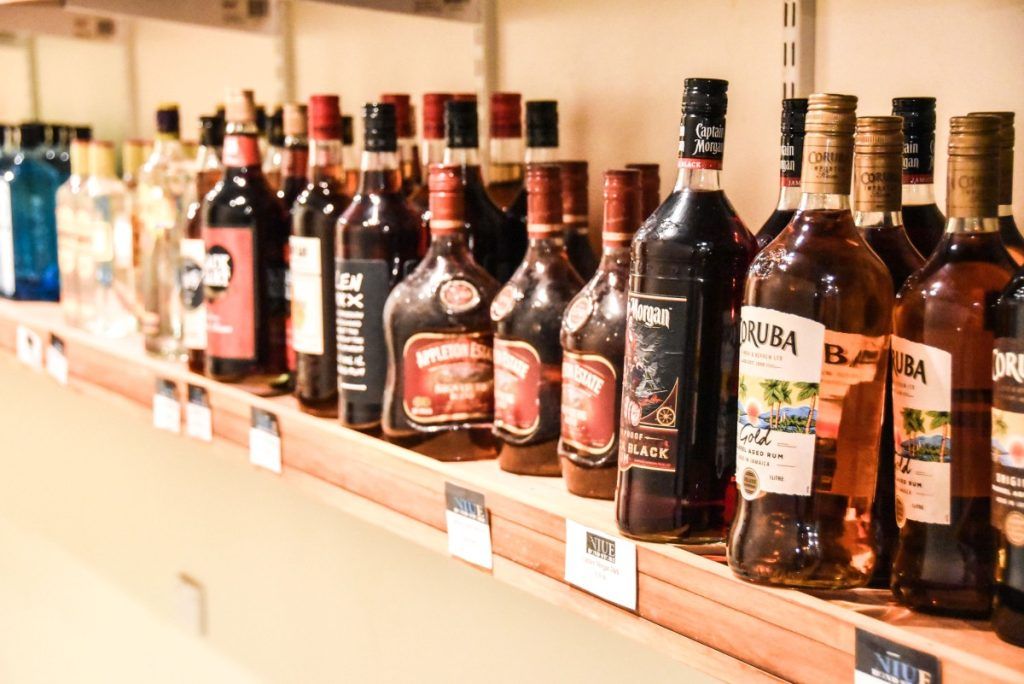 © NiuePocketGuide.com
© NiuePocketGuide.comDeclaring Goods Subject to Duty
Items that you must declare concerning Customs if you are 18 years and over include:
- Alcohol over the personal concession (3.5 l of spirits or 3.5 l of liqueur or 3.5 l of wine or 8 l of canned beer or a combination of the above provided that the total does not exceed 3.5 l). See The Duty-Free Allowances for Niue for more information
- Goods including gifts and souvenirs obtained or purchased duty-free with a combined value of more than NZ$500
- Goods carried for business or commercial use or goods carried on behalf of another person
- A total of NZ$10,000 or more in cash (including bearer negotiable instruments*) or the foreign equivalent currency
On the Niue Passenger Arrival Card, you must also state the goods you have purchased duty-free.
*Bearer negotiable instruments include any type of bill of exchange, cheque, promissory note, bearer bond, traveller’s cheque, money order, postal order or similar order. Remember, you only need to declare if you carry that or exceed NZ$10,000.
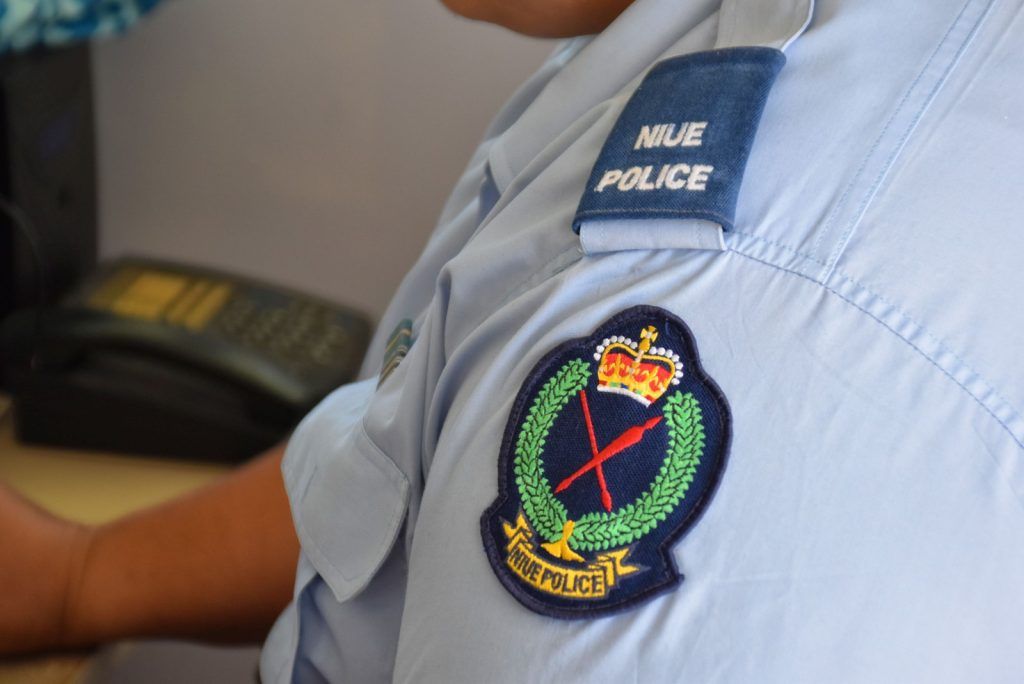 © NiuePocketGuide.com
© NiuePocketGuide.comProhibited and Restricted Imports (What You Can’t Bring into Niue)
Finally, there are some goods that are strictly prohibited from being imported into Niue, as well as goods that are restricted (i.e. need a permit).
Goods that may be prohibited or restricted include:
- Medicines (unless prescribed to you or over the counter)
- Weapons
- Indecent publications
- Endangered species of flora or fauna
- Illicit drugs or drug paraphernalia.
Although you may be able to bring some of these items into Niue, you must hold the certification and/or import permit issued by the relevant department of the Niue Government.
 © NiuePocketGuide.com
© NiuePocketGuide.comWhat Happens if Risk Goods are Found in Your Baggage
So what happens if you have a risk good that you have declared or a risk good is found in your baggage that you haven’t declared? What about if you declared something that doesn’t need to be declared?
Declaring Items That Don’t Need to Be Declared
If you declare an item and the item is not restricted or prohibited to be imported into Niue, you will be allowed to enter Niue without further action.
An Undeclared Risk Item is Found
If an undeclared risk item is found in your possession or in your luggage, you could face penalties, such as the confiscation of goods, fines, prosecution, imprisonment or deportation.
Declared Items that are Restricted or Prohibited
If you have declared an item that is restricted or prohibited from entering Niue, then the actions taken depend on what the item is.
For paying duty, you may be asked to complete a Customs Form and pay the required duty. For items that are considered a risk by Biosecurity, you may have the option of the item being destroyed or re-exported to the country of origin under Biosecurity supervision at your expense. Treatment of the item may also be an option, where biosecurity fees will apply. For health issues, you may be required to undergo a medical examination by a Health Officer.
More on What to Declare When Arriving in Niue
That’s it for our guide on what to declare when arriving in Niue. For more advice, check out the following guides about Customs and Biosecurity:
- Arriving in Niue: Airport Customs, Biosecurity & the Arrival Process
- Niue Passenger Arrival Card: What You Need to Know
- Leaving Niue: The Niue Airport Departure Process
Finally, make the process of arriving in Niue as smooth as possible following our Arriving at Hanan Airport, Niue: A Step-by-Step Guide.

Author
Robin C.
This article was reviewed and published by Robin, the co-founder of Niue Pocket Guide. He has lived, worked and travelled across 16 different countries before settling in the South Pacific, so he knows a thing or two about planning the perfect trip in this corner of the world. He is also consulting regularly with Niue Tourism to ensure content accuracy. Robin is also the co-founder of several other South Pacific travel guides and is a regular host of webinars with the South Pacific Tourism Organisation.



